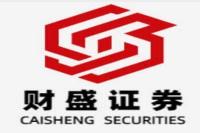A股市场震荡:破净股逆袭,AI芯片遇冷,地产股活跃!
SEO 元描述: A股市场今日震荡,破净股、银行、地产股领涨,AI概念股集体下跌,三星回购提振韩国股市。本文深入分析市场波动原因,并提供专业解读及未来展望。关键词:A股,破净股,AI芯片,地产股,韩国股市,三星,市场波动,投资分析
Whoa, what a day in the A股 market! It was a rollercoaster ride, a real whiplash of emotions. We saw a dramatic early surge, quickly followed by a steep dive—it’s like the market's playing a game of peek-a-boo with investors' nerves! This report dives deep into the intricacies of today's market fluctuations, offering a comprehensive analysis that goes beyond the headlines. We'll unpack the driving forces behind the surge in undervalued stocks, the chilling effect on AI-related companies, and the surprising resilience of the real estate sector. Prepare for a detailed breakdown, combining hard data with insightful commentary that connects the dots and paints a clearer picture of the current market landscape. We'll also examine the significant impact of Samsung's stock buyback on the Korean market, providing valuable context and illustrating the interconnectedness of global financial systems. This isn't just a recap; it's a strategic analysis designed to give you a competitive edge in navigating the complexities of the A股 and global markets. Buckle up, because we're about to embark on an in-depth exploration that will leave you better informed and more confident in your investment strategies.
破净股逆市爆发:价值投资的春天?
Today's market saw a surprising surge in "broken net" (破净) stocks, those trading below their net asset value. This counter-intuitive movement is a fascinating development, suggesting a shift in investor sentiment towards value investing. Several financial institutions, including banks, along with players in the steel, coal, and real estate sectors, experienced significant gains. Companies like Zhengzhou Bank (郑州银行), SanGang Minguang (三钢闽光), Shanghai Energy (上海能源), Financial Street (金融街), and Shirong Zhaoye (世荣兆业) even hit the daily limit!
This unexpected rally begs the question: is this a temporary blip, or a sign of a broader shift towards value investing in the A股 market? The recent release of the "Guiding Opinions on Listed Company Supervision No. 10—Market Value Management" (《上市公司监管指引第10号——市值管理》) by the China Securities Regulatory Commission (CSRC) may have played a significant role. This new guideline emphasizes the need for companies trading persistently below their net asset value to develop and disclose concrete plans for improving valuation. This regulatory push could be driving a reassessment of these undervalued assets, attracting investors seeking potential upside.
However, we must remain cautious. While the current surge is encouraging, it's crucial to conduct thorough due diligence before investing in any stock. A company's low valuation might reflect genuine underlying problems, rather than simply an undervalued asset. This rally might be a short-term reaction to regulatory changes, so long-term prospects should be carefully evaluated.
AI 应用方向集体大跌:英伟达芯片过热阴影?
In stark contrast to the gains in the value stock sector, the AI application sector experienced a significant downturn. Multiple companies saw double-digit percentage drops, a worrying sign for investors in this high-growth sector. This downturn follows reports of overheating issues with Nvidia's (英伟达) new flagship AI chip, Blackwell. Market whispers suggest that the 72-processor server configurations are encountering substantial heat problems, potentially limiting performance and even risking component damage. The potential implications are significant, impacting not just Nvidia itself, but also the entire ecosystem reliant on its cutting-edge technology. The high power consumption (120kW per rack) adds another layer of concern for data centers already grappling with energy efficiency.
This situation highlights the inherent risks in investing in rapidly evolving technologies. While AI offers immense potential, the sector is characterized by rapid innovation and constant technological leaps. This makes it particularly vulnerable to unforeseen technical challenges and rapid changes in market dynamics. Investors need to approach AI stocks with a keen eye for detail, focusing on companies with robust technological foundations, diversified revenue streams, and strong management teams capable of navigating the complexities of this cutting-edge field.
地产股表现活跃:政策利好与市场信心
Surprisingly, the real estate sector showed remarkable resilience amidst the broader market dip. Several companies, including Heimuodan (黑牡丹), Financial Street (金融街), and Rongshen Development (荣盛发展), experienced significant gains, even hitting the daily limit! This surge can be attributed to several factors. The recent decision by Shanghai to abolish the distinction between ordinary and non-ordinary residential housing has removed a regulatory hurdle, potentially stimulating the market. Furthermore, a positive statement from the China Real Estate News (中国房地产报), a publication under the Ministry of Housing and Urban-Rural Development, reaffirming the importance of the real estate sector to the Chinese economy's stability, has provided a much-needed confidence boost.
This positive sentiment, however, needs careful consideration. While positive policy shifts and reassuring statements are encouraging, the real estate sector remains susceptible to broader economic conditions and regulatory changes. Investors should tread cautiously, carefully analyzing individual companies' financial health and long-term prospects.
韩国股市大涨:三星的回购计划与芯片竞争
Across the Pacific, the Korean stock market experienced a significant surge of approximately 2%, largely driven by Samsung Electronics' (三星电子) announcement of a substantial stock buyback plan. The company plans to repurchase a staggering 10 trillion won (approximately $7.2 billion) of its own shares over the next year. This unexpected move boosted investor confidence, leading to a significant increase in Samsung's stock price. Analysts at JPMorgan Chase (摩根大通) described the announcement as a "positive surprise," suggesting that management is actively working to prevent further share price declines.
However, the buyback also raises questions regarding Samsung's long-term strategy. Analysts have noted that the move may serve to strengthen the founding family's control over the company and potentially address concerns related to pledged shares. This comes at a time when the company faces growing competition in the memory chip sector, particularly from SK Hynix's (SK海力士) partnership with Nvidia (英伟达). This partnership has positioned SK Hynix as a key supplier of high-bandwidth memory (HBM) for Nvidia's AI accelerators, potentially impacting Samsung's position in the rapidly growing AI market.
A股市场未来展望:挑战与机遇并存
The A股 market currently faces a complex interplay of challenges and opportunities. The surge in undervalued stocks points towards a potential shift in investor sentiment favoring value, but it remains unclear whether this is a sustainable trend. The downturn in the AI sector underscores the inherent risks associated with cutting-edge technologies, highlighting the need for cautious investment strategies. The resilience of the real estate sector offers a glimmer of hope, but the sector's long-term prospects remain intertwined with broader economic conditions and policy changes.
常见问题解答 (FAQ)
Q1: What caused the A股 market's sharp decline after the initial surge?
A1: The initial surge was likely driven by short-covering and optimistic sentiment. However, news regarding overheating issues with Nvidia's Blackwell AI chip, potentially impacting the AI sector, likely contributed to the subsequent decline.
Q2: Is the rise in broken-net stocks a sustainable trend?
A2: It's too early to say definitively. The recent CSRC guidelines might be a contributing factor, but thorough due diligence is essential before investing in these stocks as underlying issues may exist.
Q3: How significant is Samsung's stock buyback for the Korean market?
A3: It's a very significant event. The sheer size of the buyback has boosted investor confidence and had a substantial positive impact on Samsung's share price and the overall market.
Q4: What are the risks associated with investing in the AI sector currently?
A4: The rapid pace of technological change and the potential for unforeseen technical challenges are key risks. Competition is fierce, and success is not guaranteed even for established players.
Q5: Should I invest in real estate stocks in the current market conditions?
A5: Proceed with caution. While recent policy changes are positive, the real estate sector remains sensitive to broader economic fluctuations and regulatory changes. Thorough due diligence is crucial.
Q6: What overall strategy should investors adopt in the current market environment?
A6: A diversified approach with careful risk management is advisable. Thorough research and understanding of individual companies' fundamentals, rather than reacting solely to market sentiment, are vital for long-term success.
结论
Today's A股 market demonstrated the dynamic and unpredictable nature of financial markets. The contrasting performances of different sectors highlight the importance of a well-diversified investment strategy and thorough due diligence. While the surge in broken-net stocks, the resilience of real estate, and the impact of Samsung's actions provide interesting insights, investors should remain cautious and focus on long-term investment strategies, carefully considering the risks and rewards associated with each sector. The market remains volatile, and a thorough understanding of underlying factors is crucial for navigating its complexities. Stay informed, stay adaptable, and stay invested wisely!



